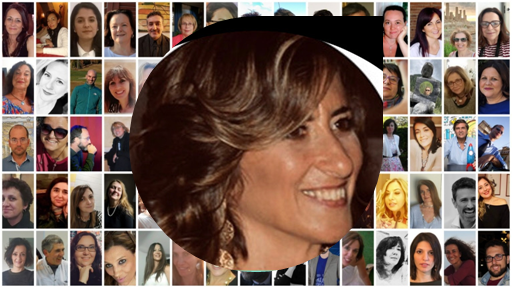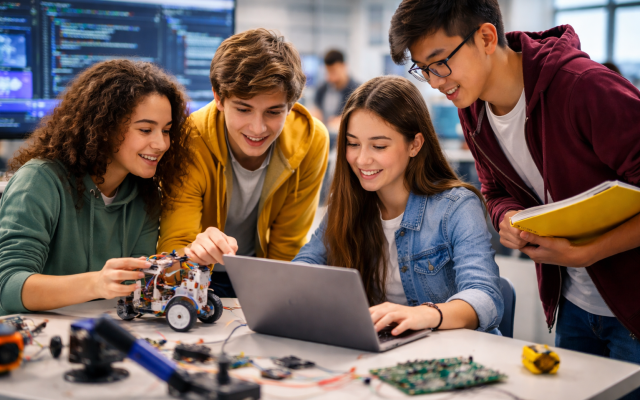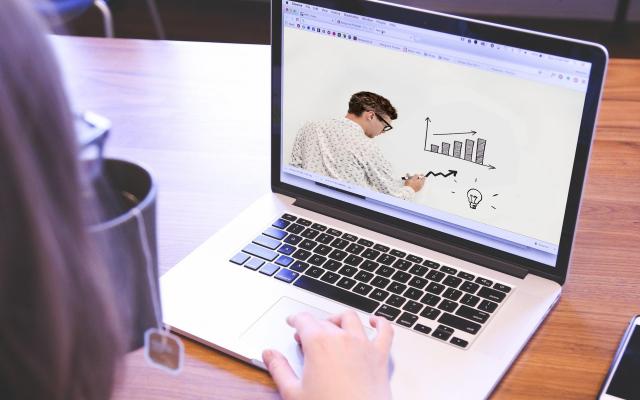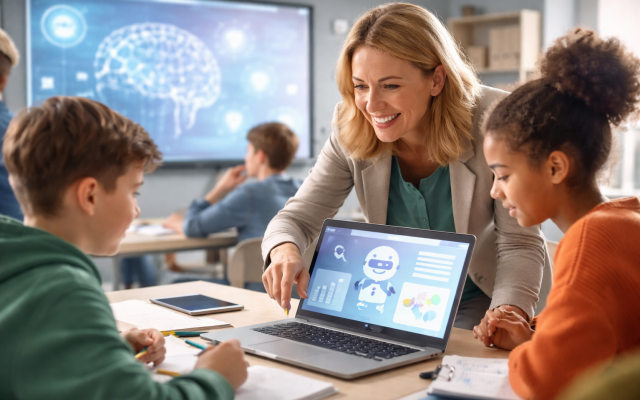Today, our phyrtual journey amongst the “Our School” Professors takes us to Puglia to meet Carmela Cuccorese.
Prof. Carmela, who has a degree in Pedagogy from the University of Bari, currently teaches Italian at the Istituto comprensivo M. D’Azeglio - G. De Nittis in Barletta, where she also acts as digital coordinator. She has also taught primary school. She received her teacher certification in History and Philosophy. As an educator, she is always on the look for new educational practices to attract her students and promote diversity.
 As usual, we share a short video in which Stefania presents herself and then an interview with Ilaria Gaudiello, who coordinates the works of the open source community of teachers.
As usual, we share a short video in which Stefania presents herself and then an interview with Ilaria Gaudiello, who coordinates the works of the open source community of teachers.
This is the fourteenth instalment of Professors in “Our School.”.
INTERVIEW
Carmela, your educational and professional career involves a subject that is indispensable for students to develop critical and creative reasoning abilities: Italian, History and Philosophy. What, do you believe, are the interconnections between humanities and digital technology?
Digital technology helps us to better delineate the issues that may arise between the classroom (even virtual ones) and the real world. This means that the classics of Italian literature and historical events can interact with the discovery of the future in a world that is rapidly changing and with technology that has profoundly changed our lives and the way in which the world works. In the industrial era, technology was used to drive productivity. Today, it is related to individual well-being. It simplifies our lives and helps students recognise their own creative genius, which must be stimulated.
This year, the experimenter that is in you encountered the Fondazione Mondo Digitale’s “Our School” and, together with another colleague, you are developing a course that unites human rights and gamification. Can you tell us more about this?
The idea was conceived with the new bill (92/2019) that reintroduced Civic Education as a transversal subject for all grades. The course focuses on three main issues: the Constitution, sustainable development and digital citizenship. Sustainable development is an action programme for individuals, the planet and prosperity, based on the 17 objectives of the Agenda 2030, that aims to promote the achievement of full human rights for everyone, gender equality and the emancipation of all women. So, we thought that it would be a good idea to present the issue through educational games to develop the strategic soft skills of students, including creativity, originality and initiative, critical reasoning and analysis, resolution of complex problems, analysis and evaluation of systems. These are the skills of the future in a working world that is experiencing continuous technological and organisational innovation.
The “Our School” Project is an initiative organised by the FMD to address the pandemic and create an open-source community to experiment with new didactic solutions based on the advantages provided by digital tools. What other solutions would you like to test in the future for inclusive didactic innovation?
I would like to see a vertical course on Dependency Grammar to stimulate students to reflect and reveal all the linguistic structures they know about through creative, interactive lessons and lab sessions.
Come di consueto condividiamo un breve video di auto presentazione, inviato dall'insegnante, e poi l'intervista curata dalla ricercatrice Ilaria Gaudiello, che coordina i lavori della comunità open source dei docenti.
Siamo così giunti al quattordicesimo appuntamento con i Docenti della scuola del noi.



